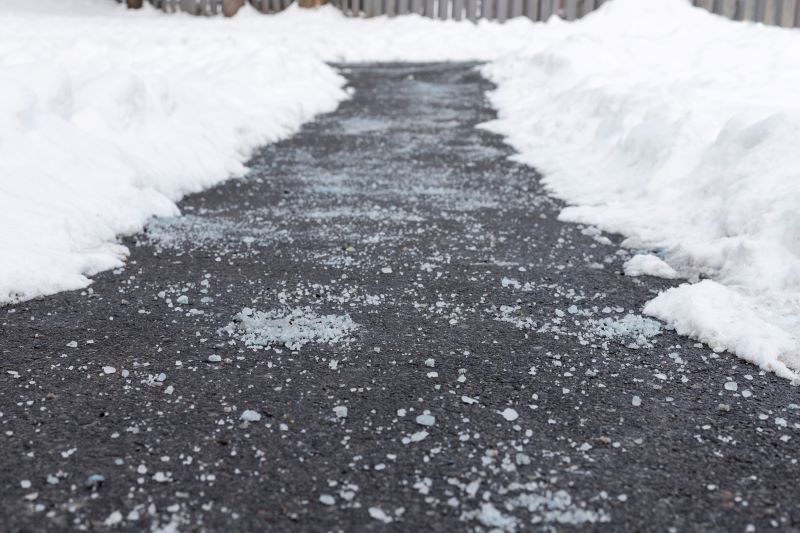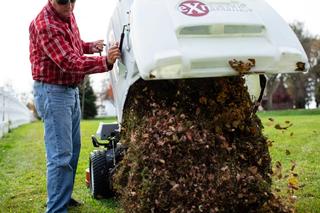Ice Melt And Your Lawn
Keep the green, lose the ice


Deicing is part of winter, and there are plenty of products available, but some of them can damage sidewalks and damage or kill anything green near where it is applied. The trick is to balance the right ice melt product with the weather, amount of ice, and adjacent greenery.
Since most ice melt products are a blend of two or more ingredients, it’s important that you read the label carefully to see what’s inside that pail of deicer.
Sodium chloride
Common rock salt, this is often the cheapest option out there and it works by lowering the freezing point of water. Rock salt is a known caustic, and can damage concrete by pitting, can stain and deteriorate wood, is corrosive to metal (like decorative fences or railings);its sodium and chlorine content can kill nearby plants.
Rock salt will melt ice down to about 20° F. and does its best job with sunshine.
Urea
While commonly used as a fertilizer, urea actually works against plants when over-applied. Urea is an effective ice melter down to about 15° F. Its sweet spot is above 25 degrees, making it not much better than strong sunlight. It does not generally damage cement.
Keep in mind that for every 10 pounds of urea you apply, about four and half bounds of that is nitrogen. Runoff into water can promote algae blooms.
Potassium chloride
Potassium chloride mixed with rock salt can can melt ice down to around 12° F. but otherwise has an effective deicing temperature of 25° F.Because it actually accelerates freeze/thaw cycles, potassium chloride is not usually an effective deicer on concrete, and can irritate the paws of pets.
Calcium magnesium acetate
Calcium magnesium acetate (CMA) melts ice with its unique acetic acid component, the same as vinegar. While only good down to about 20° F., it does not form a freeze/thaw brine like salts. CMA prevents snow particles from sticking together and on solid surfaces. Iit is said to be less corrosive than tap water.
Calcium chloride
This product melts ice to temperatures of -25˚ F.—it actually gives off heat as it dissolves, melting ice quickly but sometimes leaving a slimy residue. It is corrosive to metal and can be damaging to vegetation when over-applied. Generally regarded as safe to concrete.
Magnesium chloride
Magnesium chloride melts ice down to about -5˚ F. and is less corrosive concrete, stone, tiles, and outdoor vegetation than other products. It is considered by many as a pet-safe ice melt option with few negative effects on adjacent plants and greenery.
Deicing reminders
•Apply sparingly according to label instructions
•Remove snow first, then apply deicer
•Time and sunshine can be your friend
Tags:Seasonal Living

Acreage Life is part of the Catalyst Communications Network publication family.
















